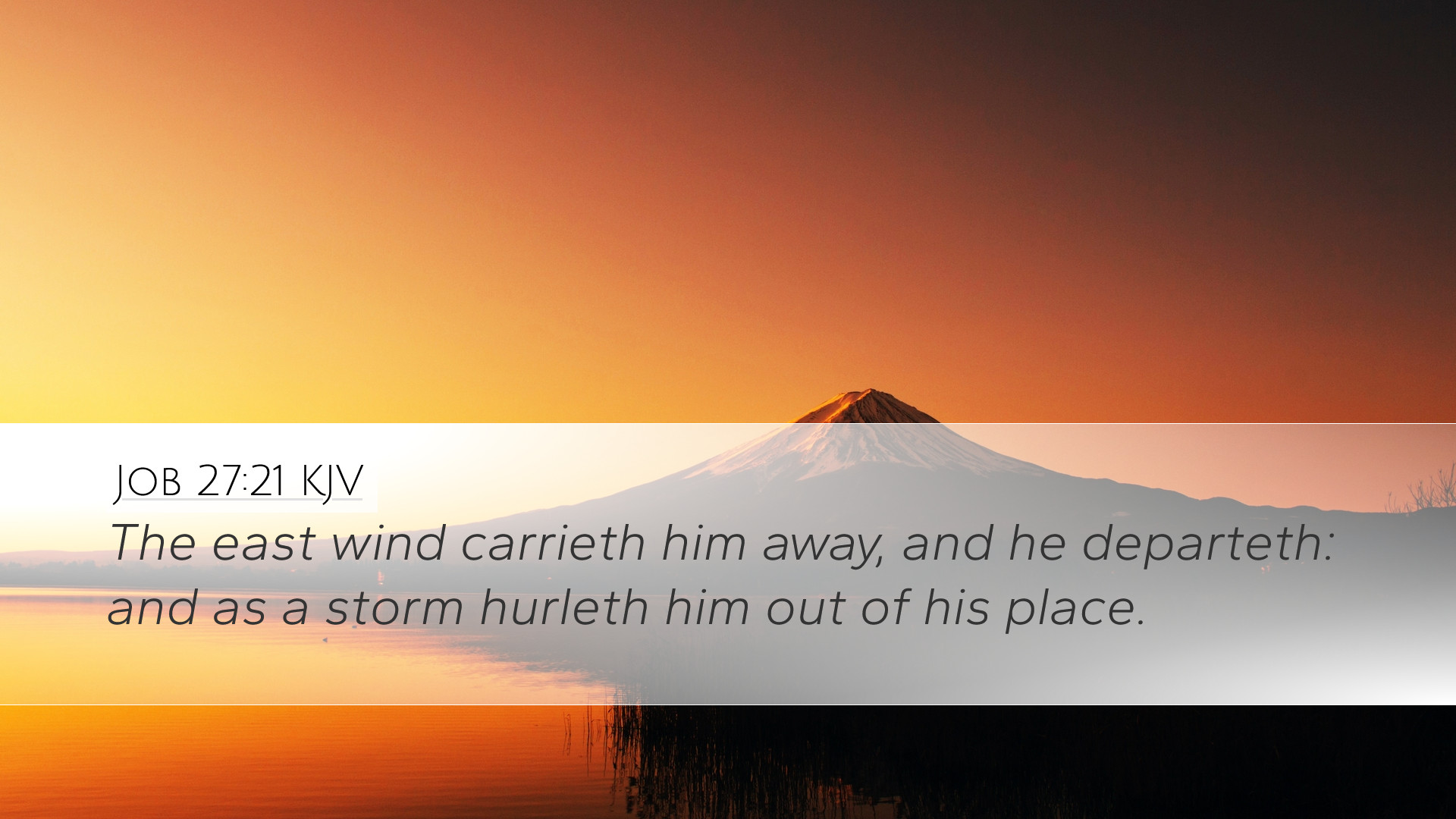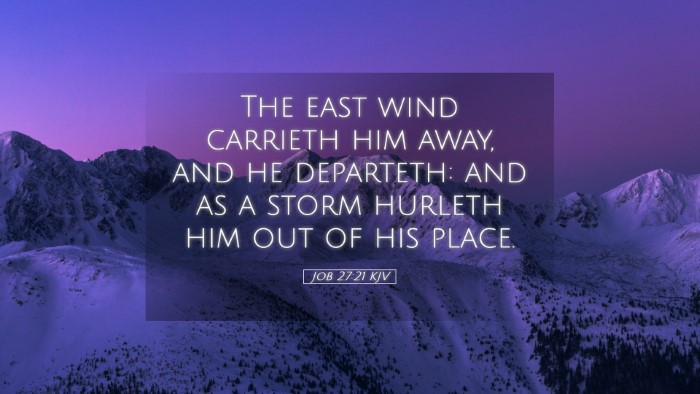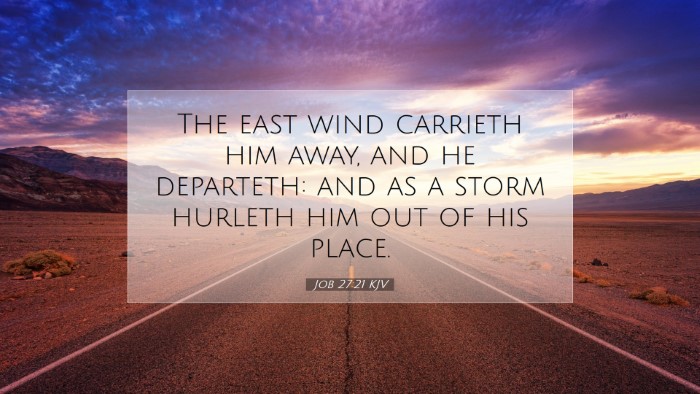Old Testament
Genesis Exodus Leviticus Numbers Deuteronomy Joshua Judges Ruth 1 Samuel 2 Samuel 1 Kings 2 Kings 1 Chronicles 2 Chronicles Ezra Nehemiah Esther Job Psalms Proverbs Ecclesiastes Song of Solomon Isaiah Jeremiah Lamentations Ezekiel Daniel Hosea Joel Amos Obadiah Jonah Micah Nahum Habakkuk Zephaniah Haggai Zechariah MalachiJob 27:21
Job 27:21 KJV
The east wind carrieth him away, and he departeth: and as a storm hurleth him out of his place.
Job 27:21 Bible Commentary
Commentary on Job 27:21
Verse Context: Job 27:21 states, “The east wind carries him away, and he departs: and as a storm hurls him out of his place.” This verse falls within the discourse where Job reflects on the fleeting nature of life and the inevitability of divine judgment.
Structural Overview
This verse highlights the transient nature of human existence, emphasizing how quickly one’s life and fortunes can change, especially under the influence of divine providence. It serves as a poignant reminder of the power of God in determining the fate of individuals.
Insights from Matthew Henry
Matthew Henry underscores the significance of the metaphor of the east wind. He notes that in the eastern climates, the east wind is often seen as a harsh and destructive force. This imagery illustrates how God's will can swiftly dismantle the foundations of human pride and self-sufficiency.
- Transience of Life: Henry emphasizes the unpredictability of life’s circumstances, suggesting that just as a powerful storm can uproot trees, so too can the divine bring down the exalted.
- Divine Sovereignty: The commentary reflects on God’s ultimate control over creation, suggesting that every earthly entity is subject to His command.
Insights from Albert Barnes
Albert Barnes provides further theological depth by exploring the nature of the 'east wind' as a representation of divine judgment. He writes of the certainty with which God enacts His justice, and how earthly beings often underestimate this reality.
- Judgment and Accountability: Barnes highlights that God’s judgment is not a mere hypothetical scenario; it is an inescapable reality. Every individual must reckon with the divine standards set upon them.
- Assurance of Justice: The text also offers comfort in knowing that even though the wicked may seem to prosper temporarily, they will ultimately face consequences for their actions.
Insights from Adam Clarke
Adam Clarke expands on the literary elements used in this verse. He points out that the use of the ‘east wind’ serves as a dual metaphor for both destruction and the rapidity of change.
- Symbolism in Nature: Clarke elaborates on how nature is often used throughout Scripture to symbolize spiritual truths. Here, the east wind represents a swift and violent change, echoing life's unpredictability.
- Human Vanity: The commentary suggests that the verse alludes to a broader theological theme of human vanity and the futility of relying solely on earthly power and possessions.
Theological Reflection
This verse invites deep theological reflection on the nature of human existence in relation to divine sovereignty. The imagery of the storm is a powerful reminder of the instability of our worldly pursuits and the certainty of divine justice. It challenges believers to reflect on their priorities and the temporal nature of earthly achievements.
Application for Pastors and Theologians
For pastors and theologians, Job 27:21 serves as a crucial text for preaching about the sovereignty of God and the reality of sin. Here are practical applications:
- Preaching on Divine Judgment: Use this verse to remind the congregation of God’s ultimate justice and encourage them to remain steadfast in faith amid trials.
- Encouragement for the Afflicted: In times of personal or communal distress, this verse offers consolation that though storms may come, they are under God’s control.
- Teaching on the Nature of Life: Incorporate reflections on the fleeting nature of life in sermons, encouraging reflection on eternal rather than temporary pursuits.
Conclusion
Job 27:21 encapsulates profound truths concerning divine sovereignty, judgment, and the ephemeral nature of life. As discussed in the insights from Matthew Henry, Albert Barnes, and Adam Clarke, this verse serves as both a warning and a comfort. It compels believers to consider the depth of their faith and the permanence of their relationship with God against the ever-changing winds of life.


